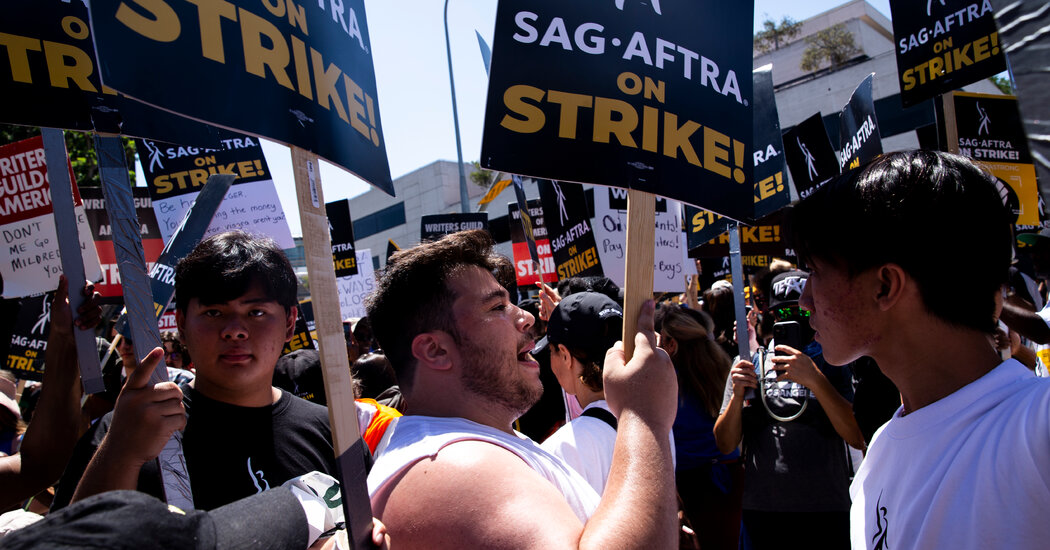The Writers Guild of America’s First Five–Year-Loop Agreement: Streaming Data and Implications to the Hollywood Industry
After a nearly five-month-long strike, the Writers Guild of America (WGA) is telling its members to lower their picket signs. The Negotiating Committee, the Board, and the Council all voted in favor of the agreement according to the post. A vote on ending the strike is scheduled for between October 2nd and 9th and will send Writers back to work.
It has been 74 days since the actors’ union and representatives of the Alliance of Motion Picture and Television Producers, which bargains on behalf of the studios, have talked. That will probably soon change given the high stakes of salvaging the 2024 theatrical box office, which will be in considerable jeopardy should Hollywood not be able to restart production within the next month. The studio alliance and the guild didn’t reply to questions on Monday.
Both the writers and actors have walked off the job in the past, but this is the first time that has happened in over 50 years. The repercussions from it have been significant both inside and outside the industry. The economy of California lost more than $5 billion, according to the governor.
The impact from labor disputes will reduce Warner Bros. Discovery’s adjusted earnings by between $300 million and $500 million this year. Disney and Paramount share prices have taken a hit in recent months.
The 94-page deal that is scheduled to remain in effect from September 25th, 2023 to May 1st, 2026 has been posted so that our can see details of their agreement for the first time. There are regulations on the use of generative AI tools as well as certain rules about streaming data and how to calculate bonuses based on viewers that jump out.
Now, studios will have to provide the WGA with actual data. Specifically “the total number of hours streamed, both domestically and internationally, of self-produced high-budget streaming programs.” That means the streamers won’t be able to come up with metrics or rankings that aren’t fair to the WGA. The numbers the studios provide may be subject to NDAs—so the rest of us won’t necessarily have access to those metrics. Yet the WGA will still be able to release data in aggregate, giving us a much more nuanced and revealing look at the business of streaming than anything we’ve had before.
AI is the Flashy Thing: The Late-Night Writers Guild of America Is Concerned about Streaming Data
When it comes to AI, the tools “can’t write or rewrite literary material, and AI-generated material will not be considered source material under the MBA.” Also, companies can’t require writers to use AI software like ChatGPT, and they have to tell writers if any materials given to the writer were generated by AI or include AI-generated material.
The late-night talk shows, such as The Tonight Show Starring Jimmy Fallon and The Late Show With Stephen Colbert, are unaffected by the strike due to their different contracts with the union.
The Writers Guild of America will cease picketing at midnight. Members of the union will vote on whether to approve the new contract, which was negotiated with the AMPTP.
The AI side of things was what the Guild had been demanding from the beginning. The summary says that literary material can not be written by Artificial Intelligence, and source material can not be generated by Artificial Intelligence. So an exec won’t be able to ask ChatGPT to come up with a story and ask writers to turn it into a script that the exec owns the rights to.
The WGA says writers of streaming features should see a minimum compensation increase of 18 percent, provided that film was budgeted at least $30 million, plus a 26 percent increase in residual base.
The WGA also “reserves the right to assert that exploitation of writers’ material to train AI is prohibited by MBA or other law.” If the laws or training are changed, the WGA will be able to call it exploitation because they will have the power to call it. This is likely related to proposed laws proposed in California regulating the use of materials for training AI.
But “AI is the flashy thing. ” The data is the game-changer,” Katharine Trendacosta, director of policy and advocacy at the Electronic Frontier Foundation, told me.
I tend to agree with it. As the LA Times noted earlier this week, streaming data has essentially been a black hole. Nobody in Hollywood knew how well some projects were doing, which made the problem worse because pay for projects is tied to performance.
And once real actual numbers start circulating, it will be a lot more difficult for streamers to claim a project succeeded when no one you know has ever heard of it or say a show is getting canceled for lack of interest while numbers suggest a different story.
The streaming industry has made it easy for companies in the fiction business to twist the story to fit the data. Now, there will be real, actual, hard data available to the WGA membership, and once the genie is out of the bottle, it will be a whole lot more difficult to smush it back in.
